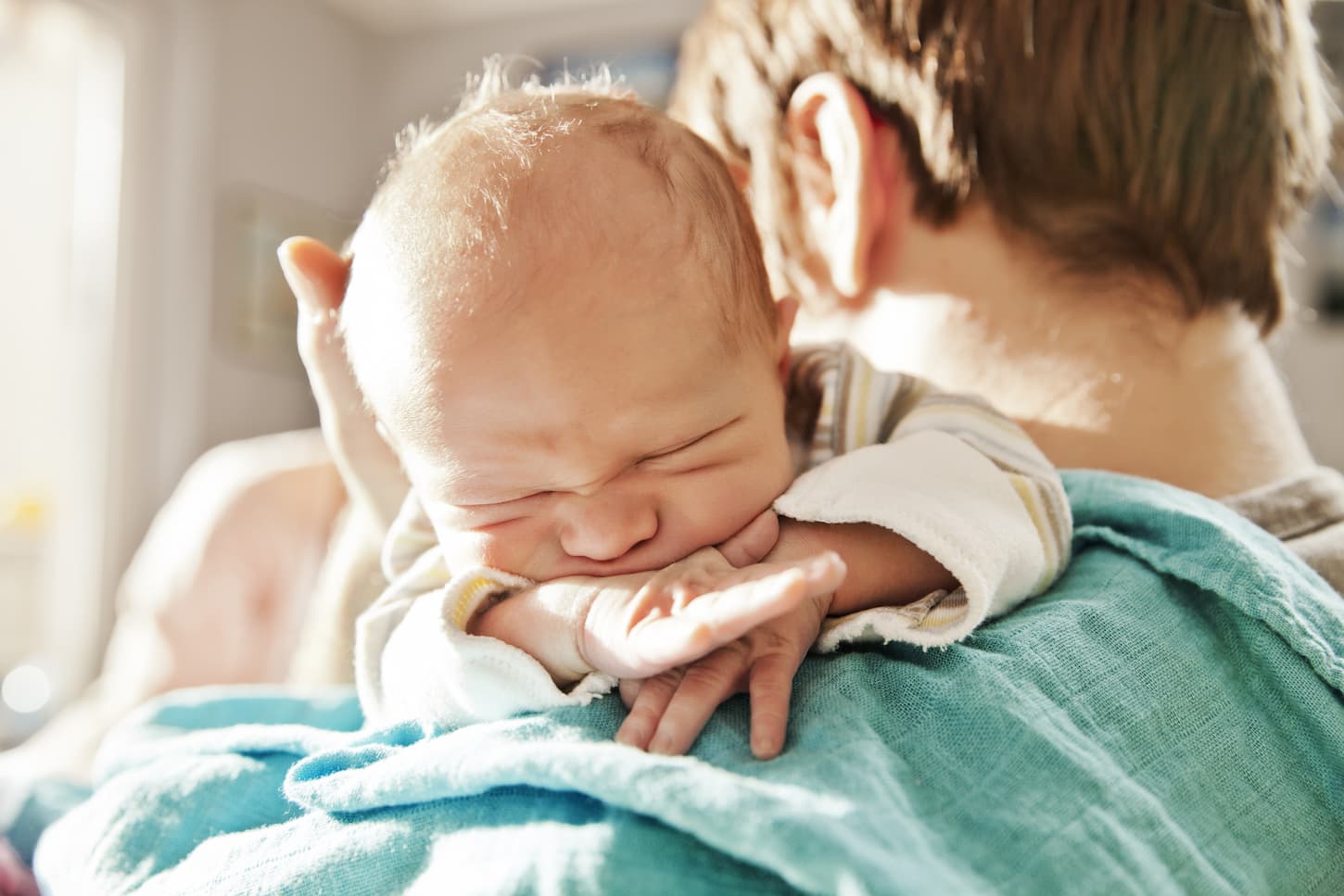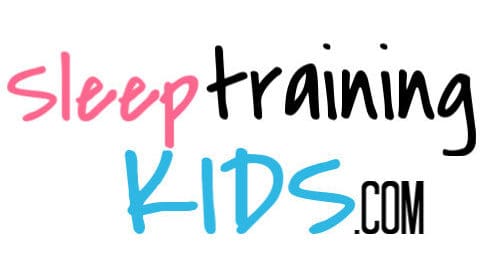I can’t count how many times I’d just have set my baby down, a tummy full of milk, to take a nap. And then I panic, wondering if I burped them. I’m scared to pick them up – and I wonder if I can just let them sleep without burping them.
In general, some babies over the age of 6 months can go to sleep without being burped as long as they don’t show signs of discomfort and do not have reflux (GERD).
The jury is still out on whether or not burping a baby is a compulsory activity that must follow feeding time, and more importantly, be done before sleep time. The contention is the fact that some babies seem to require no burping at all (source).
The actual answer, however, is a little more nuanced and will require a deeper understanding of the mechanisms that govern burping. A shortcut to achieving this understanding is by first addressing the common confusion observed among new parents, when it comes to feeding, burping, and sleep time. We’ll start with the basic version of the question.

What Happens if a Baby Doesn’t Burp?
Burping, according to conventional theory, is caused by the release of air bubbles or gas from the stomach. If your baby didn’t swallow any air during feeding and there are no gassy byproducts of digestion in his or her stomach, then there will be nothing that needs release.
Burping is a normal habit among parents. It is widely believed that babies must be burped every time they are fed and when a parent finds it difficult to burp a child after eating, panic starts to set in. In truth, however, if your baby isn’t burping after mealtime it’s probably because there’s no burp to come up.
Further, with gas, there is always the option of escaping through the other end. Thankfully, baby farts (or toots, as we call them) aren’t so offensive as cute.
That said if your child shows signs of discomfort after feeding is over, and he’s been settled, such as constant wriggling, then it’s worth attempting to burp him. If you’re not seeing any results but your baby is still showing signs of needing to burp, you can try more advanced methods like wearing the baby in a carrier, or you may want to consider medication such as gas drops. In the event that you have to use medication, it is strongly suggested that you consult your pediatrician to ensure a safe administration.
Generally, however, if your baby isn’t crying or acting out of the ordinary, in ways that hint at discomfort, then there’s no need to fret. The little tot will handle any gas or air bubbles just fine. Addressing the next common cause of confusion brings us back to the headline question:
Can a Baby go to Sleep Without Being Burped?
Properly addressing this issue requires accounting for all the variables that control burping, and the two chief factors that affect burping are the child’s age (newborn or older) and whether the child is breastfed or bottle fed.
Thus we must break the answer down into three subheadings that address the various circumstances these variables can create, before giving a final remark. The first:
Can a newborn go to sleep without being burped?
Though not always, newborns tend to require more assistance with burping than older children do, courtesy of their less-developed esophageal sphincter muscles.
Hence, it is generally recommended that you attempt to burp your newborn before sleep time – especially if mealtime is right before sleep time- to avoid a scenario where his or her sleep is disrupted by excess gas.
If after 15 minutes of intermittent one-minute attempts there is no burp, then feel free to put your baby to bed.
What if a newborn doesn’t burp before sleeping?
If your baby eventually falls asleep without burping, and, before sleeping off, showed no signs of discomfort and has not been generally diagnosed with GERD (gastroesophageal reflux disease), then it is safe to assume that the gas either has or will be released from the other end.
In other words, let the sleeping baby sleep – as long as they’re comfortable. If they’re looking uncomfortable, pick them up and burp them. It’s a risk to the nap, but it’s worth it!
Do breastfed newborns need to be burped before sleeping?
Generally speaking, breastfed newborns may need to be burped less than babies that drink milk from a bottle.
Breastfed newborns tend to swallow less air during meals than those fed with a bottle, so there may be confusion about whether to burp your baby if you’re breastfeeding, especially if you regularly read childcare articles online.
This discrepancy between bottle feeding and breastfeeding is a result of the rate at which milk is expressed and the presence of air bubbles in the bottle.
The theory is that with breastfeeding, milk flow is slower compared to its alternative and so your child will not swallow as much air because slower flows are more easily managed. The opposite is the case when a bottle is used, and this difference is more pronounced when using a feeding bottle with a nipple that’s too large for your baby’s mouth.
Also, a lot of parents shake bottles right before feeding their child and this can create air bubbles in the formula, adding to the amount of air your baby unintentionally swallows.
So, in addition to using the right size of nipple for your baby’s bottle, ensure that you wait for a while to allow the formula to settle before feeding your child.
As mentioned in the previous subsection, you should still attempt to burp your newborn, breastfed or not, before putting him or her to bed. If your attempt yields no result, then your baby is probably fine and will likely sleep with no issues.
Note: Though milk flow with bottles is usually faster, there are breastfeeding mothers who experience fast flow (also known as a ‘forceful letdown’). This is usually not an issue and most babies can handle the faster flow just fine, but it is also a factor that should be noted when trying to observe your baby’s burp patterns.

So, is it Okay if a Baby Doesn’t Burp Before Falling Asleep?
The general answer to this question, therefore, is yes, under the following circumstances:
- Your baby showed no signs of discomfort
- Your baby has never been diagnosed with GERD
- Your child is older than 6 months
Outside of these three conditions, you should definitely assure that you at least attempt to burp your baby after every feeding time and if medication is required to ensure your baby doesn’t become excessively gassy ensure you follow the directions of a professional health worker.
So far, we’ve outlined and addressed most of the common questions new parents have when it comes to ensuring their tots are properly burped. However, that is not all. We’ve found that some parents are confused by the number of times an infant should burp, and whether or not you can burp an infant that’s already asleep.
These are valid causes for concern and we’ll start with determining how many times an infant should burp after feeding.
Do Babies Only Need to be Burped Once?
Technically speaking, if a baby is able to release the excess air present in his or her stomach in one burp, then burping the child only once will suffice. The recommendation, however, is that you burp your child every time you switch breasts during breastfeeding, or after every 2-3 ounces with a bottle.
Doing this will also help your baby create space for more milk, reduce the possibility of overfeeding, and may help reduce spit-up.
Is it Okay to Feed a Sleeping Baby Without Burping them?
It is generally safe to feed a sleeping baby without burping them, though, as always, it is better to err on the side of safety and attempt to burp the sleeping baby.
The techniques required to burp a sleeping child are very similar to those used to burp a child that’s awake, the primary difference being that the former requires a lot more gentleness so as to avoid waking the child.
Final Thoughts on Burping Babies
As we’ve seen, there are no hard-and-fast rules when it comes to burping a child. As long as your child is showing no signs of discomfort, is not suffering from GERD, and is older than 6 months, then all is well.
If your baby has been diagnosed with GERD, please make sure to consult your doctor. They’ll be able to give you more advice, ideas, prescriptions, and resources to help your baby manage their reflux.
My children were never diagnosed with reflux, but they always seemed to sleep better after being burped – up until 6-8 months old. After that, they got good at releasing the gas on their own – from one end or the other!
In any case, it’s always easier to err on the side of caution. So when my babies were still little, I was right there with you. I’d sigh as I picked them up, burped them, and prayed they’d stay asleep. Sometimes it worked. Sometimes it didn’t.
But in either case, I’m here for you – so make sure you sign up for the free newsletter so you can have all of the free support you need through sleep training.
Resources
Learning about parenting or sleep training techniques is important to learn from various reputable sources. These are the sources used in this article and our research to be more informed as parents.
- “Debunking Old Wives’ Tales: Do Babies Need to Burp After Feeding?” University of Utah Health, healthcare.utah.edu/the-scope/shows.php?shows=0_j8jqtr2m.
- Norris, Taylor. “How to Burp a Sleeping Baby: Step-by-Step Guide.” Healthline, Healthline Media, 6 Sept. 2018, www.healthline.com/health/how-to-burp-a-sleeping-baby#burping-a-sleeping-baby.
- Sanders, Laura. “Maybe You Don’t Need to Burp Your Baby.” Science News, www.sciencenews.org/blog/growth-curve/maybe-you-dont-need-burp-your-baby.
- SK;, Kaur R;Bharti B;Saini. “A Randomized Controlled Trial of Burping for the Prevention of Colic and Regurgitation in Healthy Infants.” Child: Care, Health and Development, U.S. National Library of Medicine, pubmed.ncbi.nlm.nih.gov/24910161/.
